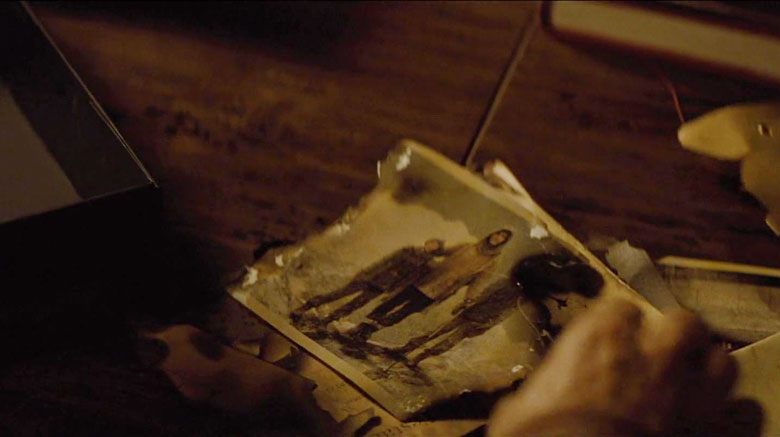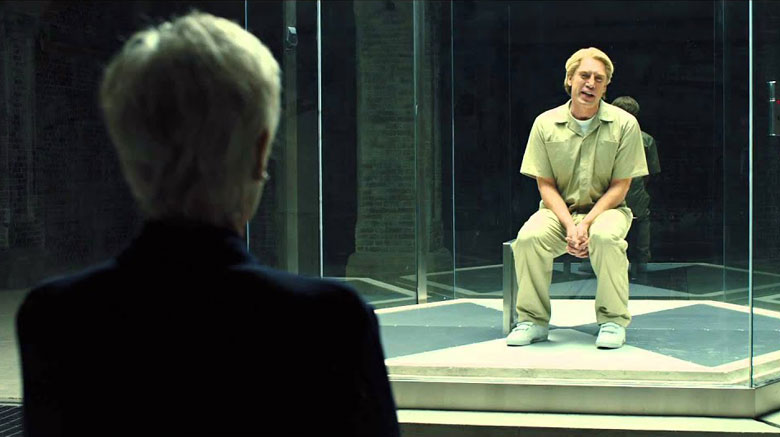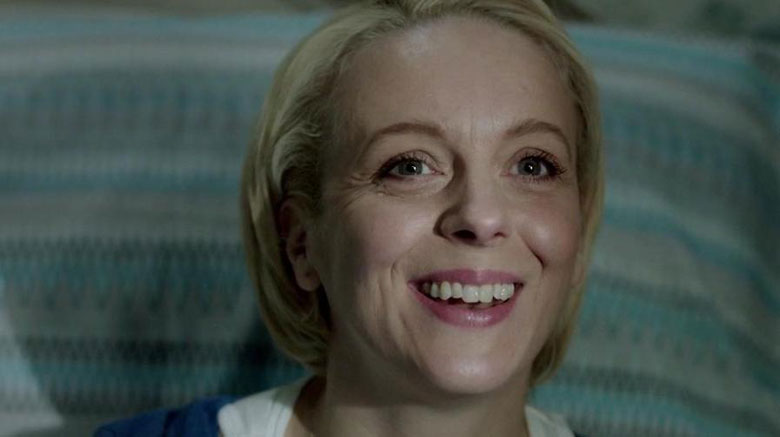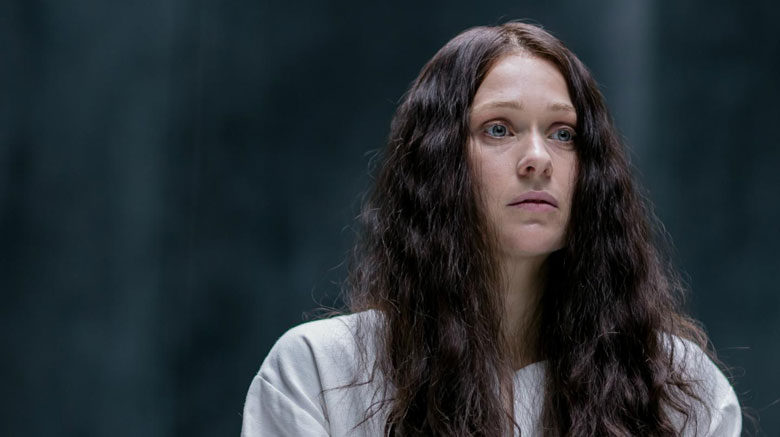
January 11, 2019 – What if Christopher Nolan, in his Batman trilogy, had decided to make the Joker a long-lost “brother” of Bruce Wayne’s? Or what if the next Superman movie conjures up a long-lost adoptive sister for Clark, who turns out to be his archrival? Does that sound like strong writing? Well, Bond and Sherlock are guilty of doing just this sort of thing…
Ala Star Wars 8, the writers of Spectre decided to sidestep the writings of the original author, Ian Fleming. How? They decided to make Bond and Blofeld siblings. It turns out, after the death of his parents, James got a new guardian, Hannes Oberhauser. But Hannes already had a son, Franz, who became jealous of James and killed his father over it. Franz then became the evil mastermind Blofeld, headed up Spectre, and targeted James because of childhood jealousy (killing the father wasn’t enough).
Maybe you think that’s talented writing. For me, it’s a big, “What were they thinking?” Spectre made a lot of money, probably because people were eager after Skyfall. But the film would be better, probably shorter (runtime: 2.5 hours), and more palatable for repeat viewings if this silly plot device had not been utilized. After 23 films, the evil villian Blofeld is actually James Bond’s adoptive brother? C’mon.
The other main villain in Spectre was Max Denbigh, whom Bond dubbed "C." Denbigh worked for MI6. With one exception, I don’t recall any Bond villain ever being someone who worked for MI6. It’s not as close to home as an adoptive brother, but it follows the same desperate writing strategy: the villains must have some direct connection to the heroes. But why is this necessary? It’s not, but the writers of Spectre had already tipped their hand for such strategies in their previous outing…

I definitely liked Skyfall. It can withstand repeat viewings, which is key. But with Skyfall, you could see the beginnings of what would become the huge, revisionistic faux pas that is Spectre. How so?
Skyfall doesn’t have just a normal bad guy. Raoul Silva (played by Javier Bardem) formerly worked for MI6. He has a longstanding, personal grudge against M (Judi Dench). Sound familiar? Bardem made an incredible villain. But his character could have been even stronger with no affiliation/grudge with M and MI6. Not just stronger, more believable. And it’s not as if Bond villains require a backstory. That's not what the Bond movies are about.
With Silva, Skyfall had foreshadowed two major elements that would plague Spectre: the personal revenge theme (this time against M not Bond) and the MI6 co-worker villain theme (this time Silva not C). That leaves a third major element from Spectre: the family theme. To accomplish this, Silva goes after Bond at Bond’s family home. Yes, the Scottish farmhouse scenes were action-packed and well-done. But does it have to be Bond’s family’s house? Why?
Again, I like Skyfall. None of what I’ve mentioned is a deal breaker. But I think the movie could have been stronger. One thing’s for sure: with Skyfall you could see the writing on the wall for what the same writers would use as plot devices in Spectre. And, even if such devices worked in, or rather, didn’t derail, Skyfall, why be lazy, use them again, and assume they’ll work in the next film, Spectre?

(I did a fan edit of Spectre, with Blofeld not being Bond’s adoptive brother. Read more about this fan edit here or download it here.)
Sherlock was a very fresh, creative show when it began in 2010. For me, though, it deteriorated after Season 1. By Season 3, the writing was showing signs of laziness of the kind aforementioned: someone very close to our heroes must turn out to be a villain.
In Season 3, the writers decided to reveal that John Watson’s love interest, a nurse, whom he would later marry, was an ex-assassin. Mary Morstan was a character in the writings of Sir Arthur Conan Doyle, but she wasn’t an assassin. Now she would be. It‘s not that such an idea would be weak in all instances, but for Sherlock, it did feel weak. It felt desperate, forced.
But this was nothing compared to the silly plot twist of the show’s final season in 2017. Yes, you guessed it. Again, contrary to the writings of the original author, it turns out that Sherlock Holmes had a long-lost sister, whom we’ve never heard of before. And she ends up being the arch-villain of Season 4, and Sherlock’s archrival.

A crazy mastermind with no backstory would be more entertaining – and more believable – than whipping up a sister for Sherlock out of thin air. For Watson’s wife, why couldn’t she be just an indispensable help in solving the cases? That’s more believable than having this kind, sweet woman be a former assassin.
Maybe, as with the Bond films, the writers of Sherlock just hit a creative wall. What do we do next? In such cases, though, wouldn’t it make more sense to bring on some new writers, with some fresh ideas that are sound?
And there’s another example that’s hot off the presses (I swear I’m not making this up)…

Consider the plot of the recently released The Girl in the Spider's Web. Yes, you guessed it: the arch-villain of our hero (Lisbeth) is her long-lost, believed-to-be-dead twin sister, Camilla. And Camilla might as well be Ernst Blofeld from Spectre. She’s had a major, long-standing grudge against Lisbeth, since childhood. Doesn’t that sound so familiar?
I’m a big fan of Claire Foy, and a big fan of the Millennium series. But, like before, this movie was not based on the writings of the original author, the late Stieg Larsson. This is a new story with a new writer. And, as with Bond and Sherlock, this instance of the-villain-must-have-a-close-connection-to-the-hero felt weak, forced, and desperate.

(So I did an experimental fan edit of this movie, with the Camilla character not being Lisbeth’s sister. Read more about the fan edit here or download it here.)
Though it didn’t work for 2018’s The Girl in the Spider's Web, the villain-close-to-home device did work in the Millennium series written by Stieg Larsson, which was also made into three movies: The Girl with the Dragon Tattoo, The Girl Who Played with Fire, and The Girl Who Kicked the Hornets’ Nest.
The plot device worked in this series/trilogy because we weren’t blindsided with something implausible. From the first movie, we knew that Lisbeth’s father was a bad guy, and that during childhood she even set him on fire. So, in the second movie when his character became prominent, it wasn’t out of left field. It didn’t feel forced or like a desperate writing go-to. Just the opposite. From the outset, Lisbeth’s relationship to her evil father was an important part of the story as a whole, not something thrown in for lack of a better idea.
